Drop in animal feed imports fuel fears over Iran's food security

Iran’s customs data indicates that strategic reserves of animal feed have declined, raising warnings about potential impacts on the country's food security.

Iran’s customs data indicates that strategic reserves of animal feed have declined, raising warnings about potential impacts on the country's food security.

A senior Iranian intelligence official and a network of operatives have been identified as key figures in a cyber group that targeted London-based broadcaster Iran International and its staff, according to information obtained by the channel.
The hacking group, known as “Handala,” is tied to the Iranian Ministry of Intelligence’s Domestic Security Directorate and operates as part of a broader cyber unit known as “Banished Kitten” — also referred to as Storm-0842 or Dune.
This unit falls under the supervision of Yahya Hosseini Panjaki, the ministry’s deputy for domestic security. Panjaki was sanctioned by the United States in 2024 over alleged plots to assassinate Iranian dissidents abroad, a few months after his identity was exposed by Iran International.
The broadcaster said the latest findings show that the July cyber operation was intended to intimidate journalists and disrupt their work, with the group publishing personal documents, private images, and screenshots from an editorial meeting.
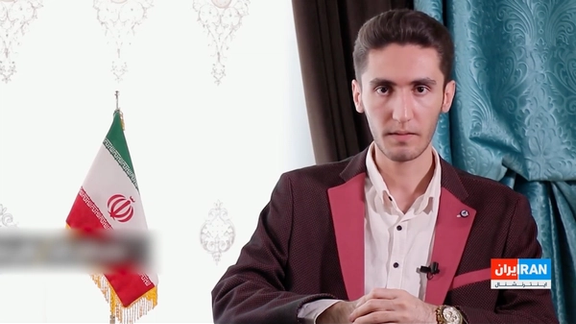
According to information obtained by Iran International, one of the identified operatives is Ali Bermoudeh, a 27-year-old from Tabriz who runs an online store and has previously worked with Iran’s cyber police (FATA).
One source said that "Bermoudeh is an amateur hacker whose passwords for many of his main accounts are simply his date of birth. All his user credentials with that same password are stored with one service provider."
According to the source, he has been gathering user data for security agencies since his teenage years, and he is connected to the network through his father Mousa Bermoudeh, a provincial official with the state-affiliated Foundation of Martyrs and Veterans Affairs and a decorated IRGC Basij member.
The group also includes Morteza Aftabifar, said to be Bermoudeh’s handler within the Ministry of Intelligence.
Both men are from Tabriz, as is Panjaki, who heads the larger project within which the cyber unit operates.
Panjaki is described as part of a newer generation of intelligence managers trusted by Supreme Leader Ali Khamenei, with a background in political science from Azad University of Tabriz. He also founded a “Qassem Soleimani Headquarters” within the ministry, coordinating with the Islamic Revolutionary Guard Corps on overseas operations, the channel has learned.
In July, Iran International confirmed that leaked materials published by Iranian state outlets came from earlier hacks in summer 2024 and January 2025, which it attributed to Banished Kitten.
The channel said the hackers may have installed malware via compromised Telegram accounts. “These cyberattacks are part of a broader campaign of threats targeting Iran International, including physical threats against our staff.”
Iran International, which reports on events in Iran and the wider region, said its staff had faced sustained harassment since the channel was founded in 2017, including threats of assassination and kidnapping, physical assaults, online abuse, and hacking.
British lawmakers have accused Iran of engaging in “transnational repression” on UK soil, citing assassination plots, intimidation of family members, asset freezes, smear campaigns, and cyberattacks.
Lawyers for the broadcaster’s staff say 45 journalists and 315 of their relatives have been threatened in recent weeks, with death threats issued if they did not resign by set deadlines.
The channel has also been the focus of physical threats: in 2023 a man was convicted under terrorism laws after filming outside its premises, and in 2024 a presenter was stabbed in London.
Iran International said earlier in August that it had filed an urgent appeal to United Nations experts over “serious risks to the lives and safety” of its journalists worldwide and their relatives inside Iran.
US-based advocacy group United Against Nuclear Iran (UANI) called on Washington and its European allies to confront Iran’s transnational repression, which it says has escalated since the start of a 12-day war between Iran and Israel in June.
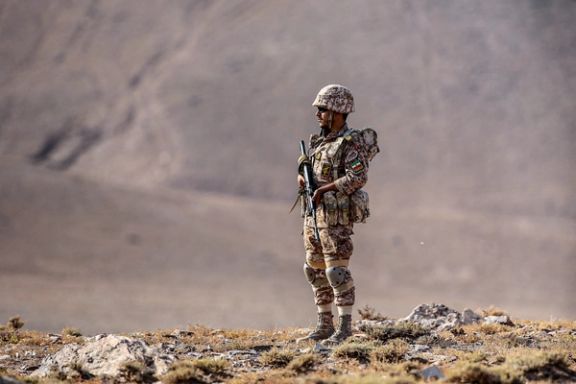
Iran’s foreign minister said on Thursday that Armenia has assured Tehran it will uphold all of Iran’s red lines regarding the Zangezur region and that no US forces will be stationed along the Iranian-Armenian border, amid concerns over the US-brokered deal in the South Caucasus.
Foreign Minister Abbas Araghchi told state media that Armenian leaders had engaged in direct consultations with Iranian officials in recent days to explain recent developments.
“Prime Minister [Nikol] Pashinyan spoke with our president, their foreign minister called me, and the deputy foreign minister of Armenia came to Tehran,” he said. “The Armenians insist on briefing us and have told us they will observe all of Iran’s red lines regarding Zangezur.”
Last week, US President Donald Trump brokered a peace deal between Armenia and Azerbaijan, which gives Washington leasing rights to develop the Zangezur transit route connecting Azerbaijan with its exclave, Nakhchivan. It will be renamed the Trump Route for International Peace and Prosperity (TRIPP).
Araghchi said the situation that has emerged is very different from earlier proposals. “It is natural that the full dimensions of the Zangezur issue are not yet completely clear,” he said. “But what the surface of the matter shows, and what the Armenians are telling us, is that what has happened is worlds apart from what was supposed to happen — a change in the geopolitical map of the region.”
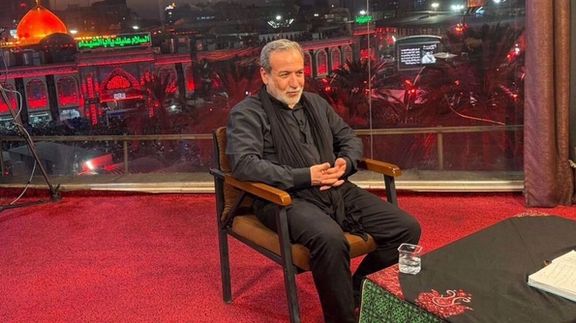
He recalled that initial discussions had involved the seizure of Armenia’s Syunik province, followed by the creation of a corridor. “We expressed our serious concerns, and that project was shelved.”
According to Araghchi, the current plan involves “an American company registered in Armenia under Armenian law, operating under Armenian sovereignty, to build the road.”
He added, “I am not saying what is happening is without concern. Based on what Armenian officials have told us, this road will be established by an American company registered under Armenian law and under Armenian sovereignty. They tell us they have respected and paid attention to all of Iran’s red lines in this matter.”
Rejecting claims that the project would make Iran a neighbor of NATO, Araghchi said Tehran had conveyed its concerns about any foreign presence to both Azerbaijan and Armenia.
“A US engineering company is to carry out the work, but there will be no American forces stationed at the Iran-Armenia border,” he said.
"Security will be provided by Armenia itself, and even private American companies will not be allowed to provide security. These are the statements from Armenian officials — of course, we will maintain the necessary vigilance.”
Iran’s president will travel to Yerevan next week, Armenian media reported this week, citing the country’s economy ministry.
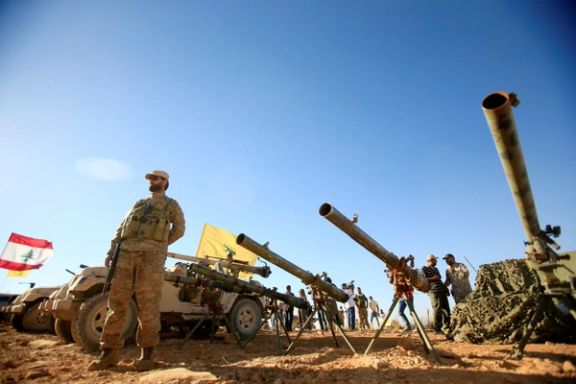
Hezbollah leader Naim Qassem warned on Friday that moves to strip the group of its weapons risk plunging Lebanon into war, vowing that the Iran-backed movement would not surrender its arsenal despite a recent government decision to disarm it.
Speaking in the eastern city of Baalbek at a Shi’ite religious gathering marking the Arbaeen, Qassem said “the resistance will not hand over its weapons” and pledged to fight a “Karbala-like battle” if necessary.
The Battle of Karbala, the most iconic event in Shia Islam, was fought in 680 between Imam Hussein, grandson of the Prophet Muhammad, and the forces of Umayyad Caliph Yazid I; Qassem likened Iran’s Supreme Leader to the “Hussein of our time” and named Israel and the United States as the “Yazid of our time.”
Qassem described the group’s arms as central to Lebanon’s “honor, dignity, patriotism, and sovereignty,” and credited the Islamic Republic for its ongoing financial, military, and political support.
Threatening US embassy in Beirut
Qassem also warned the Lebanese government against any moves to confront Hezbollah, saying such action would leave “no life” in the country.
He said Hezbollah and its Shi’ite ally, the Amal movement, had decided to postpone street demonstrations against a US-supported disarmament plan, citing a remaining window for dialogue with authorities.
However, he cautioned that any future protests could extend to the vicinity of the US Embassy in Beirut.
The US submitted a plan through President Donald Trump's envoy to the region, Tom Barrack, setting out the most detailed steps yet for disarming Hezbollah, which has rejected mounting calls to disarm since its devastating war with Israel last year.
Lebanon’s justice minister said on Friday that the government was already working on a plan to collect Hezbollah’s weapons before the US proposal, as part of efforts to strengthen state authority and keep arms solely in the hands of official forces.
"The threat by some to destroy Lebanon in defense of their weapons puts an end to the claim that the weapons are for defending Lebanon," Adel Nassar wrote on X.
The Lebanese cabinet’s August 5 order to disarm Hezbollah during conflict drew sharp criticism from Tehran.
Senior Iranian official Ali-Akbar Velayati called the decision “a dream that won’t come true,” labeling it an Israeli- and US-driven policy. Lebanon’s foreign ministry condemned those remarks as “unacceptable interference” in domestic affairs.
Qassem’s remarks came after Iran’s Supreme National Security Council Secretary Ali Larijani visited Lebanon, meeting Qassem, President Joseph Aoun, Parliament Speaker Nabih Berri, and other officials.
Aoun told Larijani on Wednesday that no group should bear arms outside the authority of the state or rely on foreign backing, while affirming openness to cooperation “within national sovereignty and mutual respect.”
Larijani responded by voicing respect for Lebanon’s government decisions but also urged Beirut to “appreciate the value of the resistance,” calling Israel the country’s true enemy.
He denied that Iran interferes in Lebanon’s affairs and pledged continued political and reconstruction support.
Founded in 1982 by Iran’s Islamic Revolutionary Guards Corps, Hezbollah has grown into Lebanon’s most powerful military force, surpassing the national army in capabilities. The group has fought multiple wars with Israel and has rejected any initiatives to dismantle its military wing.
“The aggression continues,” Qassem said, “and we will confront it as we have always done — with our weapons in hand.”
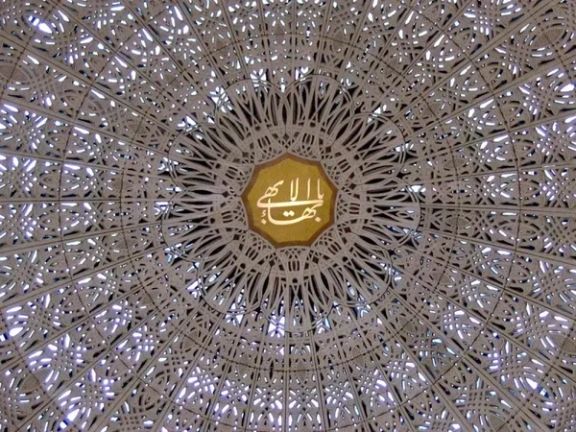
More than 20 members of Iran’s Baha’i minority in the central city of Isfahan have had their homes, assets and vehicles confiscated in recent weeks, in some cases being informed only by text message, the Baha’i International Community (BIC) said on Wednesday.
The Geneva-based group said the seizures were carried out under Article 49 of Iran’s constitution, which allows authorities to confiscate wealth obtained through illegal means. The BIC accused authorities of misusing the law “without any evidence, legal process, or transparency” to target citizens solely for their religious beliefs.
“Article 49 was designed to return stolen property to its rightful owners, not to plunder the possessions of citizens and deprive families of their homes and livelihoods,” said Simin Fahandej, the BIC’s representative in Geneva.
“What we are witnessing is effectively state-organized theft – confiscation by text message. This action is discriminatory, completely illegal, and aimed at impoverishing a religious minority simply because of their belief.”
The BIC said affected families have faced blocked bank accounts, frozen business transactions, and restrictions on selling or transferring property. In some cases, it said, court files were not recorded in Iran’s official judicial notification system, preventing defendants and their lawyers from reviewing them.
The confiscations were ordered by special courts operating under Article 49, which the BIC said are a branch of the Revolutionary Court overseen by the Executive Headquarters of Imam’s Directive (Setad), a state-controlled conglomerate under the authority of Supreme Leader Ali Khamenei.
The BIC said the measures in Isfahan follow a long-running pattern of property seizures against Baha’is since the 1979 Islamic Revolution, alongside other restrictions including denial of access to higher education, bans on certain jobs, and interference with religious burial sites.
According to the US-based Human Rights Activists News Agency (HRANA), the Baha’i community in Iran has faced systematic repression over the past five years, including the arrest of at least 284 people and more than 1,495 years in combined prison sentences.
HRANA said Baha’is account for an average of 72% of all recorded violations against religious minorities in Iran over the past three years.
Iran’s constitution recognizes Islam, Christianity, Judaism and Zoroastrianism as official religions, but not the Baha’i faith, which emerged in 19th century Iran. Islamic Republic authorities consider it a “cult” and have accused its followers of links to foreign powers, charges the Baha’is deny.
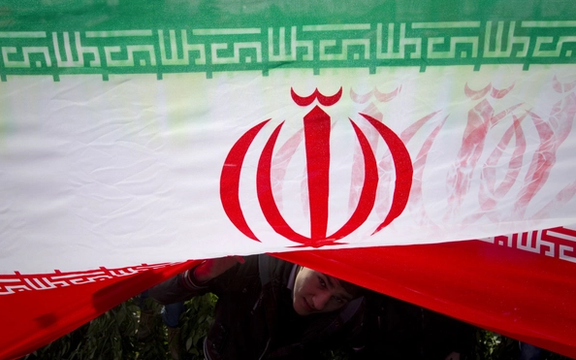
Iranian officials said on Thursday they are seeking ways to prevent the return of UN sanctions and are ready to hold talks with the United States over Tehran's disputed nuclear program, provided they are not used as a pretext for another military campaign.
Foreign Minister Abbas Araghchi and Supreme National Security Council Secretary Ali Larijani both said the Islamic Republic prefers the path of peace and is determined to block the Europeans' bid to reinstate the UN sanctions via the so-called "snapback" mechanism.
“Europeans have until October 28 to trigger the snapback mechanism," Araghchi told the state TV.
He acknowledged the three European countries could technically trigger snapback but argued the move would lack legitimacy.
"In our view—given their positions, including their insistence on zero enrichment despite Iran’s enrichment rights under the 2015 nuclear deal—they lack the legitimacy to discuss or apply any part of the deal, including snapback."
“Iran, China, and Russia are in a legal dispute with the three European countries in the UN Security Council over whether they have the right to trigger snapback. Our view is they do not, and even if they did, it lacks legitimacy,” he said.
France, Germany, and the United Kingdom have told the United Nations they are prepared to reimpose international sanctions on Iran unless it resumes nuclear negotiations with the United States and other powers, according to a letter shared by the French foreign ministry on Wednesday.
“There is no doubt something must be done to stop it, and we will spare no effort until the last moment,” Araghchi said.
The snapback mechanism, part of UN Security Council Resolution 2231, allows any JCPOA party to accuse Iran of non-compliance. If no agreement is reached within 30 days to keep the bans lifted, all previous UN sanctions automatically return, including arms embargoes, cargo inspections, and missile restrictions.
If European powers trigger the snapback mechanism against Iran, the country would face isolation from global financial markets, a sharp drop in oil exports, with foreign investment blocked by legal hurdles, US-based National Security Journal said in an analysis piece on Thursday.
Iran’s Ministry of Intelligence on Monday reportedly issued secret guidance instructing ministries and major companies to prepare for the likely return of UN sanctions.
'Talks with US possible'
Iran's top security official Ali Larijani said on Thursday talks with the United States are possible but only if aimed at a genuine resolution.
“If the United States realizes it cannot defeat the Islamic Republic through war and then seeks negotiations, we will respond positively. But if they negotiate to prepare for the next war, it will be of no benefit to us,” Larijani said in an interview Lebanon’s Al-Mayadeen.
“Some believe negotiations can solve everything. Negotiations are only useful when both sides accept and understand they cannot achieve their goals through war,” Larijani added.
France, the United Kingdom and Germany told Iran they would restore UN sanctions unless it reopened talks on its nuclear program immediately and produced concrete results by the end of August.
Negotiations under the Trump administration began with a 60-day ultimatum to Iran. On the 61st day on June 13, Israel launched a surprise military campaign.
The Israeli strikes began on the eve of the sixth round of negotiations with the United States.
On the ninth day of fighting, the United States bombed three Iranian nuclear sites which US President Donald Trump has consistently said "obliterated" the country's nuclear program.
“Customs data shows a 60% decrease in soybean meal imports and an 8% decrease in corn imports in the first four months of this year compared to the same period last year,” ILNA news agency reported.
“Animal feed inputs of very low quality have reached end consumers at prices about twice the approved rates due to import monopolies — a trend that seriously threatens the country's food security in the sensitive period following June’s 12-day war with Israel,” ILNA quoted Mojtaba Aali, the CEO of the National Livestock Farmers Union, as saying, referring to June's 12-day war with Israel.
Aali said that livestock farmers in Fars province, a key hub for livestock production, recently held protests over the issue.
According to Iranian media, over the past five months, reserves of supplies such as corn and soybean meal, which are mostly imported from countries such as Brazil, have been significantly lower than the country’s monthly consumption.
In the same period, a rise in prices has been recorded, affecting most livestock farmers and their ability to purchase animal feed.
“Corn has been traded at 130,000 rials ($1.30), barley at 220,000 rials ($2.30), and soybean meal at 230,000 rials ($2.40),” ILNA reported.
According to S&P Global, the June war has left behind many issues facing the country's food security, not least regarding essential imports.
"Exporters of corn and soybeans in Brazil and Basmati rice from India have already raised alarms about trade with Iran due to rising insurance premiums, delayed payments, and wartime dangers such as jamming of navigation or communication systems," its analysts wrote.
Amid an economic crisis, Iran is currently grappling with multiple national challenges including severe water shortages and widespread power outages which are also hampering the country's agricultural industry.
As of 2025, data from Iran’s Statistics Center shows that the country’s agricultural land has shrunk to 15.43 million hectares, a decrease from 18 million hectares in previous years.
Farming continues to be a major source of livelihood, supporting over 4.5 million people, 89% of whom live in rural areas and 11% in urban settings, with the agricultural sector contributing roughly 8.3% to Iran’s GDP and employing about 27% of the national workforce.
Compounding this, over the past year, the country has experienced a 1.5°C increase in average temperatures and a 45% decline in rainfall, leading to further desertification across the country.